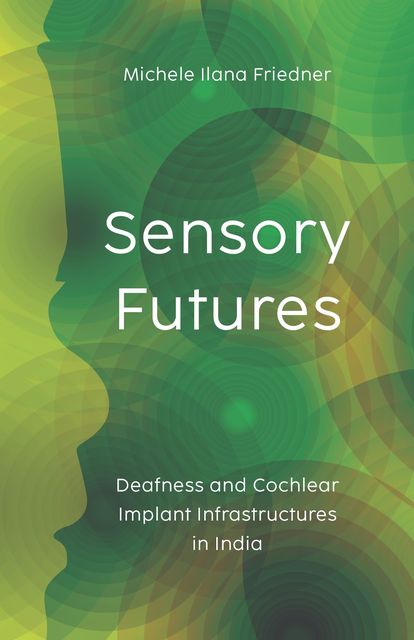Winner of the Society for Social Studies of Science (4S) Rachel Carson Prize, 2023
Sensory Futures
Deafness and Cochlear Implant Infrastructures in India
What happens when cochlear implants, heralded as the first successful bionic technologies, make their way around the globe and are provided by both states and growing private markets? As Sensory Futures follows these implants from development to domestication and their unequal distribution in India, Michele Ilana Friedner explores biotechnical intervention in the realm of disability and its implications for state politics in the Global South.
A signing and speaking deaf bilateral cochlear implant user, Friedner weaves personal reflections into this fine-grained ethnography of everyday negotiations, activist aspirations, and the space of the family. She places sensory anthropology in conversation with disability studies to analyze how normative sensoria are cultivated and the pursuit of listening and speaking capability is enacted. She argues that the conditions of potentiality that have emerged through cochlear implantation have, in fact, resulted in ever narrower understandings of future life possibilities. Rejecting sensory hierarchies that privilege audition, Friedner calls for multisensory, multimodal, and multipersonal ways of relating to the world.
Sensory Futures explores deaf people’s desires to create habitable worlds and grapple with what their futures might look like, in India and beyond, amid a surge in both biotechnical interventions and disability rights activism. With implications for a broad range of disability experiences, this sensitive, in-depth research focuses on the specific experiences of deaf people, both children and adults, and the structural, political, and social possibilities offered by both biotechnological and social “cures.”
Background photo by Sergio Aragón on Unsplash

Table of Contents
Metadata
- isbn978-1-4529-6778-3
- publisherUniversity of Minnesota Press
- publisher placeMinneapolis, MN
- restrictionsAll rights reserved. No part of this publication may be reproduced, stored in a retrieval system, or transmitted, in any form or by any means, electronic, mechanical, photocopying, recording, or otherwise, without the prior written permission of the publisher.
- rightsThe University of Minnesota Press gratefully acknowledges support for the open-access edition of this book from the Center for International Social Science Research at the University of Chicago.
Copyright 2022 by the Regents of the University of Minnesota - rights holderRegents of the University of Minnesota
- doi


